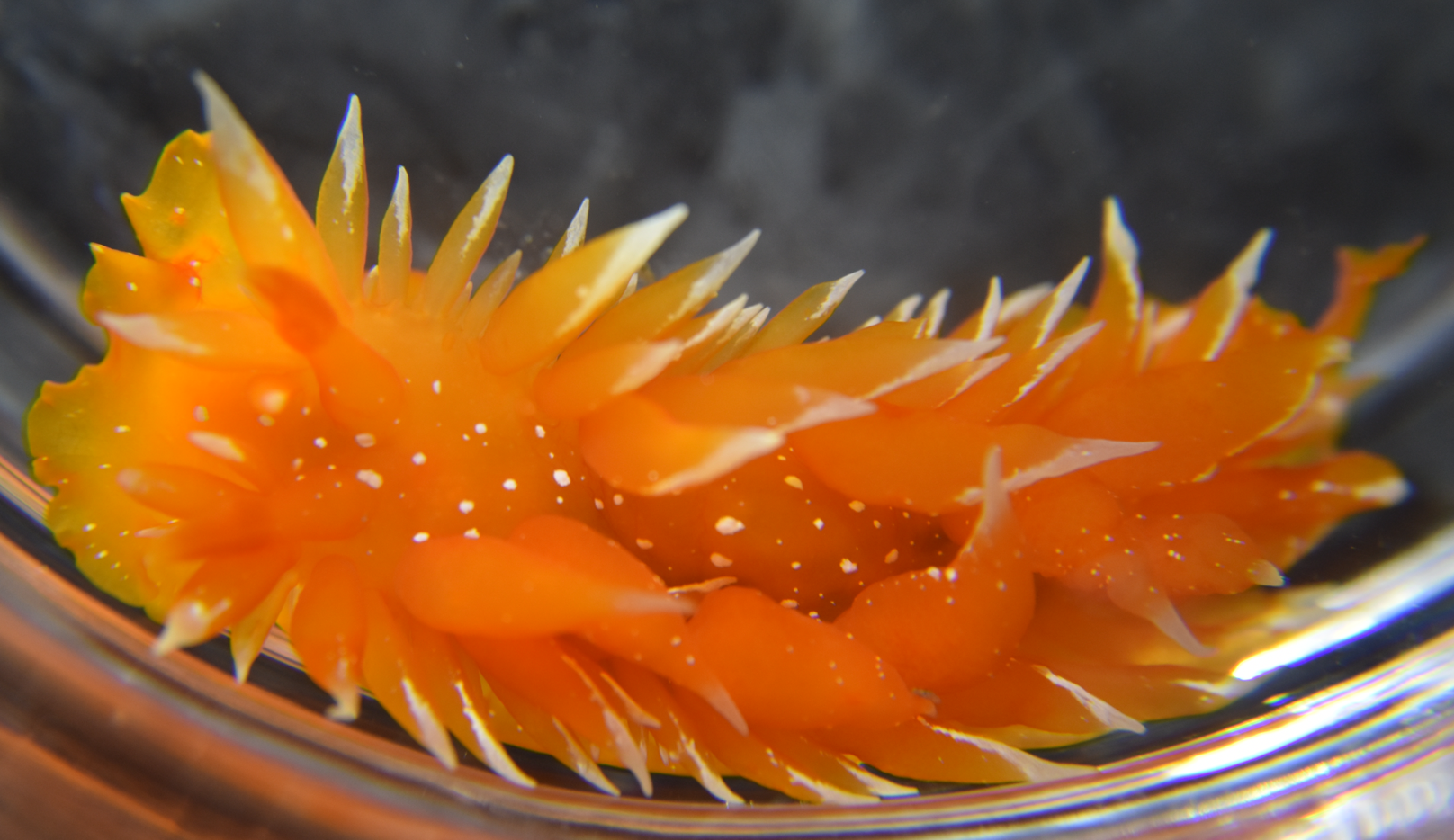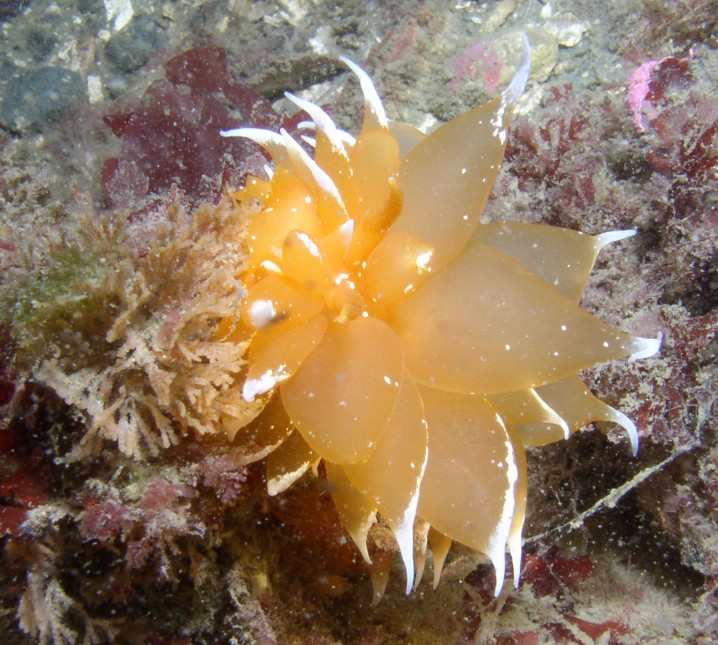How to Distinguish from Similar Species: The cerata on Arminaceans such as this species often make them look a lot like Eolid nudibranchs, but they can be distinguished from Eolids because Arminaceans have the anus on a papilla on the rear third of the body (right side) while Eolids have it on the anterior third of the body (right side). Dirona albolineata has grayish white, salmon, or purple cerata with white lines and a white line around the foot and frontal veil and between the cerata but has no white splotches on the dorsum.
Geographical Range: King Island, Alaska south to Oregon, plus Siberian coast.
Depth Range: Shallow subtidal
Habitat: Rocks, kelp, and mud, sometimes around floating docks.
Biology/Natural
History: This species
feeds on bryozoans
| Return to: | |||
| Main Page | Alphabetic Index | Systematic Index | Glossary |
References:
Dichotomous Keys:Kozloff 1987, 1996
General References:
Behrens,1991
Harbo,1999
Kozloff,1993
Scientific
Articles:
Web sites:
General Notes and Observations: Locations, abundances, unusual behaviors:
This 3 cm-long individual was found on a navigational piling in the
Padilla Bay channel leading to the Swinomish Channel entrance. Photo by
Dave Cowles, August 2024.
Authors and Editors of Page:
Dave Cowles (2007): Created original page
CSS coding for page developed by Jonathan Cowles (2007)
